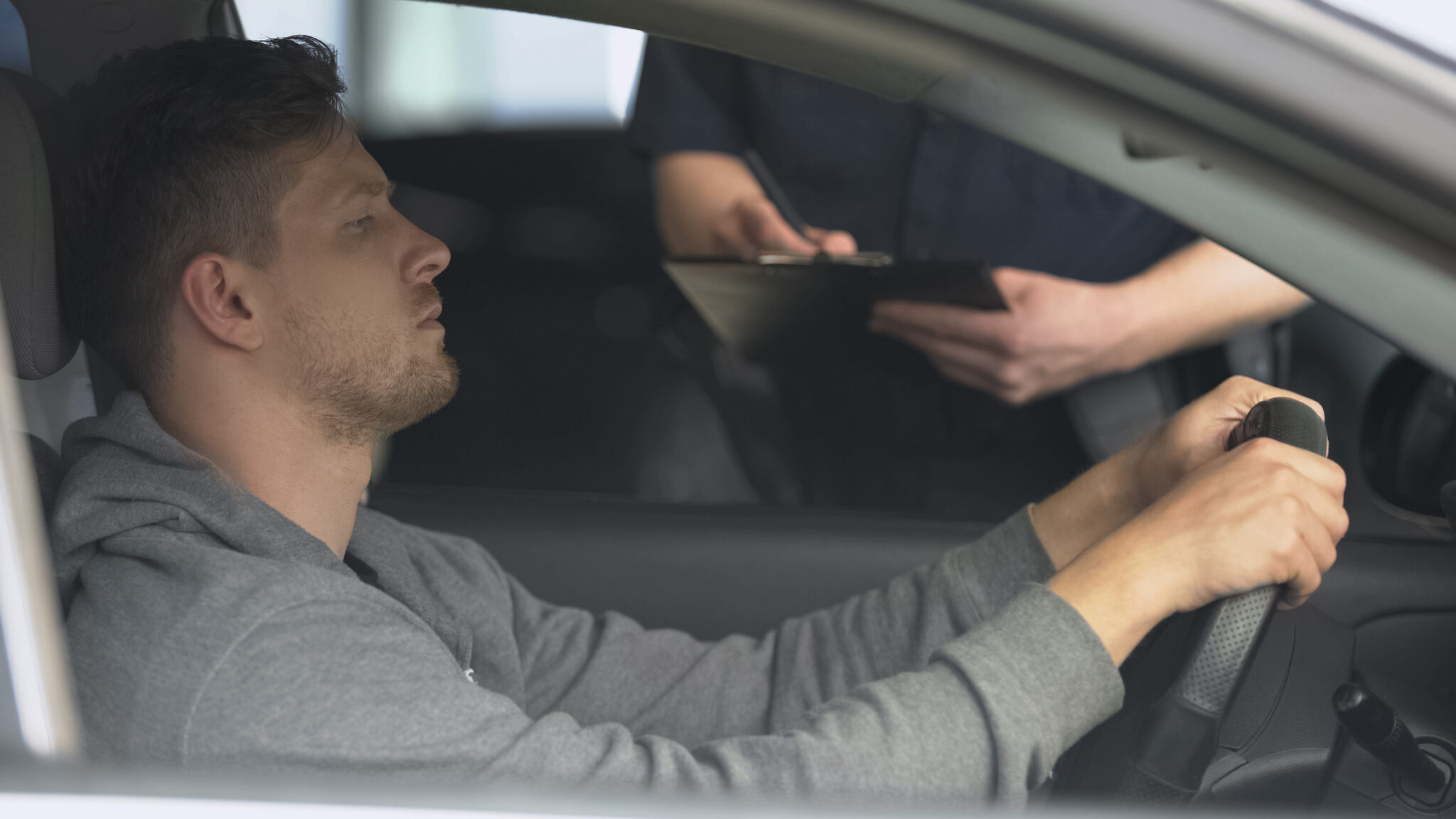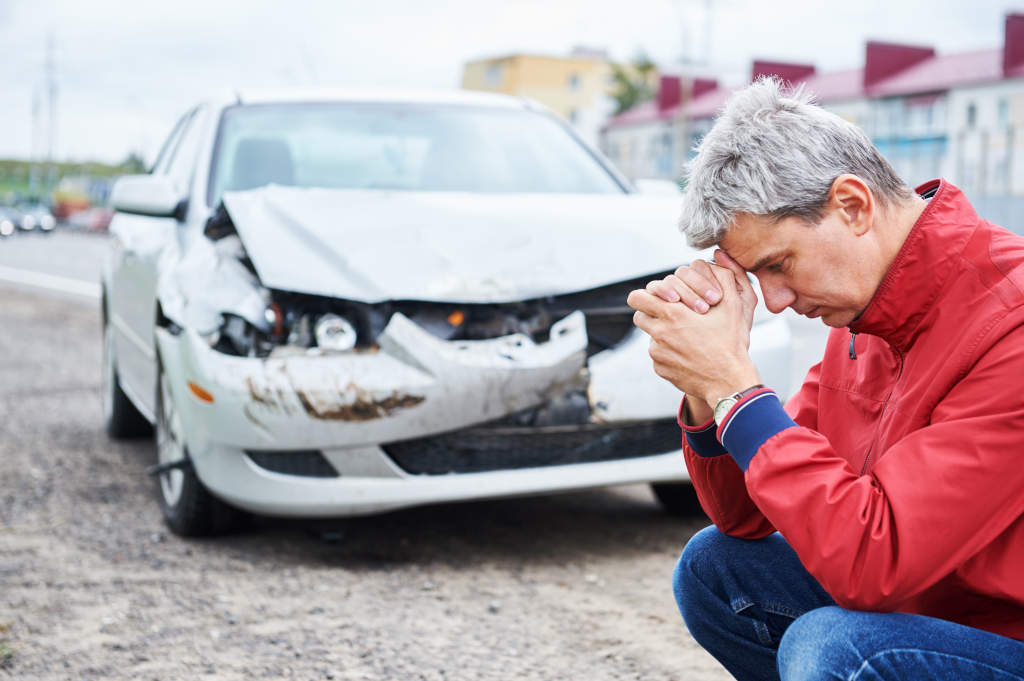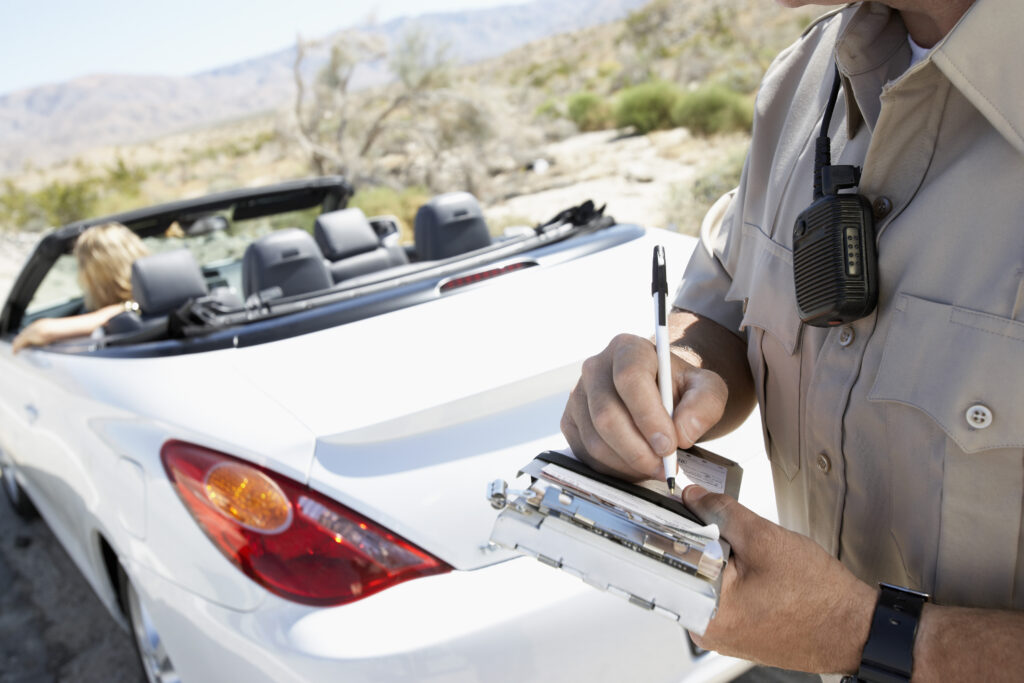There’s no way around it. If you want to be legal, you need car insurance. Most states (except for New Hampshire and Virginia) require it. But what happens if you decide to risk it and drive anyway? More importantly, what are the penalties for driving without coverage?
There are many repercussions for driving without insurance. Some are obvious, like a big ticket if you get stopped by law enforcement and can’t provide proof of coverage. It should also be no surprise that you pay out of pocket for any damage you cause. You’re also on the hook for medical costs, including hospital bills, if you’re the at-fault driver of a crash that results in injuries. In addition, there’s an excellent chance that your license will be suspended.
Uninsured drivers cost everyone money, even the scofflaw. A high percentage of these motorists in a state or zip code results in premium increases for everyone. It’s also a nightmare for everyone involved in a crash when the at-fault driver has no coverage. For this reason, states and insurers won’t be kind to you if you get behind the wheel without the protection of an insurance policy.
In this article, we’ll explain more about the penalties for driving without auto insurance. You’ll learn why it’s mandated almost everywhere including any required coverages. We’ll also tell you about potential legal troubles you might face. Finally, you’ll discover what happens if you get into an accident with no coverage.
Auto Insurance Is Not Optional
Driving without insurance is risky. You might be able to get by for a little while without it. But the fact is that it’s against the law. The police could pull you over at any moment if you’re speeding and find out about your lack of coverage. You could also get into an accident, leaving you to pick up the pieces. And you could still get in legal trouble there, too.
Common Coverage Requirements
You need to prove financial responsibility to operate a passenger vehicle in the United States. But each state sets its own rules regarding limits and required types of insurance. Even so, liability coverage is compulsory almost everywhere, and in many state’s it’s all you need to be legal.
Liability insurance has two main components, one covers property and the other people:
- Property damage. Covers damages that you cause to property i.e., light posts, trees, cars, buildings, etc.
- Bodily injury. Protects you from having to pay for the other party’s injury expenses. Covers expenses like medical bills, funeral costs, EMT fees, x-rays, etc.
Liability is the most basic form of auto insurance and will protect you from any damage you cause to others or their property. Remember that it doesn’t cover any damages to your car or expenses related to injuries you incur. Also, if you’ve financed your vehicle, your lender will require full coverage to protect their investment.
You might consider buying other types of insurance for extra protection. Here are some additional coverages you may need:
- Comprehensive
- Collision
- Personal injury protection (PIP)
- Medical payments
- Uninsured and underinsured motorist
Your state’s auto insurance law may require some or all of the above coverages. Be sure to consult with your state’s bare minimum requirements to know what you need to include on your policy.
You Could Face Legal Troubles
Driving without any insurance could land you in some serious legal trouble. The penalties you face will depend on the state you live in. Your state might make it hard to drive by taking away your license. It may also force you to buy coverage and file an SR-22. Here are the most common punishments you could receive:
- Driver’s license suspension. The state might take away your license if you drive without insurance. The exact length of your suspension will vary based on the situation and your state.
- Vehicle impounding. In some cases, your car will end up in an impound lot. You’ll have to pay a fee and show proof of coverage to get it back. This is a tough and complex situation to be in.
- SR-22. Your state might require you to apply for an SR-22 form. This form certifies that your policy is enough to meet your state’s minimum requirements.
- Fines. You could very well have to pay fines if you drive without coverage. As an example, California fines drivers $200 or more if the police catch them on the road without it. Other states, such as Massachusetts, West Virginia, New Jersey, and Hawaii, charge upwards of $5,000 in fines.
- Jail. Driving without insurance could land you in jail. This could happen if this is a repeat offense. It might also happen if the situation is very severe. This will likely depend on state law.
Remember that any legal action that occurs will depend on your state’s laws. Be sure to consult with your state’s policies on uninsured driving to know more about what could happen. Though, the bottom line is that you shouldn’t drive without auto coverage.
Getting Into an Accident Without Coverage
You’re always at risk to get in an accident when you drive. But at least car insurance will help you take care of the expenses that come with it. What if you don’t have coverage and you get into an accident? This is where it can get expensive.
When you get into an accident without auto insurance, you’re on the hook to pay for all of the potential damages to you and the other party. Of course, this is if you cause the accident. If the other person causes it, their policy will cover your bodily injuries or property damage. You might even have to pay some of your expenses if the at-fault driver can’t. This means you could end up paying thousands of dollars out of pocket for the accident.
Getting into an accident without coverage might also cause you to lose your driver’s license. The police will inevitably find out about an accident. If you can’t offer up any proof of auto insurance at the scene or after the fact, you’ll likely face consequences. Whether or not you lose your license will depend on state law. In many cases, if damages reach a certain amount, you’ll lose your license.
You’ll Likely Become a High-Risk Driver
Operating a car while uninsured can also make you a high-risk driver. This is someone who insurers deem to be likely to file claims or cost them money. These are typically people who have a poor driver record, credit, or insurance history. But it could also be someone caught without coverage.
When the state catches you behind the wheel without insurance coverage, you can lose your driver’s license. Insurers will generally label those with license suspensions as high risk. Not to mention, having such a violation for uninsured driving is a glaring mark on your record.
Being a high-risk driver will make it hard for you to buy insurance in the future. Your policy will either be very expensive or completely unavailable to you from standard insurers. You’ll likely have to turn to a high-risk policy from non-standard companies to maintain legal coverage. And they’re not cheap either.
You’ll definitely want to shop around. If you’ve been caught without insurance and need a new policy, check out our article on the best companies for a bad driving record. We rank the largest, most well-known high-risk insurers from best to worst.
What to Do If You Can’t Afford Coverage
Not being able to afford coverage doesn’t mean you should try and drive without it. Getting into an accident without it could cost you even more in the long run. That’s not a risk you should take. Even if insurance is really expensive (which it often is), there are still ways to get it. Here are some ways that you can make auto coverage more affordable:
- Find discounts. Many insurers offer discounts that you can qualify for. Be sure to check with your provider about any discounts that you could easily get.
- See if your state has a low-income program. Hawaii, California, and New Jersey offer low-income coverage for people who can’t afford it. If you live in these states, low-income options may be worth looking into.
Frequently Asked Questions
Is it illegal to drive without car insurance?
Yes, it’s illegal in 48 of 50 states to drive without any form of auto insurance. The only states that don’t require liability coverage are New Hampshire and Virginia. But even they require proof of financial responsibility.
If a state trooper catches you without car insurance or proof of financial responsibility, you could face tough legal penalties and steep fines. Insurers may also not want to do business with you afterward. Getting into an accident without it might also wipe out your bank account. It’s best to buy a policy that meets minimum requirements if you plan on driving.
What if the at-fault driver is underinsured and I have no coverage?
If the at-fault driver doesn’t have enough car insurance to cover the costs of the damages, you could end up paying for it. In general, they’d be liable for repairs out of pocket. But it doesn’t always end up working that way. You might have to try and get them to pay for it. You could end up having to covering expenses yourself. This is why it’s best to have protection. You likely wouldn’t have to worry about out of pocket costs if your policy covers it.
Does insurance follow me or the car?
It’s a common mistake to think that the person is the one who’s insured. In reality, insurance always follows the car. When you’re driving another person’s vehicle, their policy would cover any damages from an accident. The same goes for when you let someone else drive yours.


